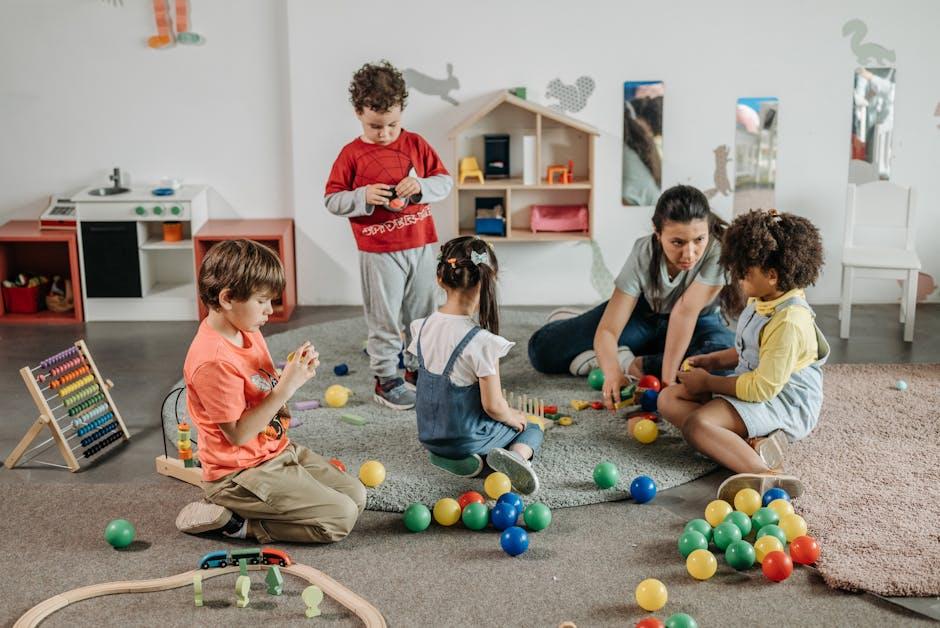The Role of Early Socialization in Preventing Behavior Issues

In the bustling world of pet ownership, few topics generate as much discussion and concern as the behavior of our beloved furry companions. Whether you’re a seasoned pet parent or a newcomer to the joys of animal companionship, understanding the intricacies of pet behavior is crucial. One of the most significant factors influencing an animal’s temperament and conduct is early socialization. This foundational period in a young pet’s life can set the stage for a lifetime of happiness and harmony or, if neglected, lead to a host of behavioral challenges. In this article, we will explore the vital role that early socialization plays in shaping well-adjusted pets, offering insights into why this process is essential and how it can prevent common behavior issues. By embracing the principles of early socialization, pet owners can cultivate a nurturing environment that fosters confidence, adaptability, and joy in their animals, paving the way for a rewarding and enriching relationship.
Understanding the Basics of Early Socialization
At its core, early socialization is the process by which young animals, including humans, learn to interact with their environment and the beings within it. This foundational period, typically during the first few months of life, is crucial for shaping future behavior. The experiences and interactions a young animal has during this time significantly influence how they perceive and react to the world around them. Without proper socialization, animals may develop fears, anxieties, or aggressive tendencies, which can lead to behavior issues down the line.
- Exposure to Diverse Environments: Introducing your pet to various settings, sounds, and sights helps build their confidence and adaptability.
- Interacting with Different Species: Early interactions with other animals can teach pets how to communicate and play safely.
- Meeting New People: Allowing your pet to meet a range of people ensures they grow up to be friendly and trusting.
- Positive Reinforcement: Rewarding good behavior during these interactions encourages positive associations and reduces fear.
By focusing on these key areas, you can help lay a solid foundation for your pet’s behavioral development, ensuring they grow into well-adjusted and happy companions.

The Connection Between Early Socialization and Behavioral Development
Early socialization plays a pivotal role in shaping a child’s behavior and can significantly influence their emotional and social well-being. By exposing children to diverse social environments and interactions at a young age, parents and caregivers can help them develop critical skills that are essential for navigating the complexities of human relationships. Through early social experiences, children learn how to:
- Communicate effectively: Interacting with peers and adults helps children develop language skills and learn the nuances of verbal and non-verbal communication.
- Understand and manage emotions: Exposure to different social situations allows children to recognize and regulate their emotions, fostering emotional intelligence.
- Build empathy: By observing and participating in social exchanges, children learn to understand others’ feelings and perspectives, which is crucial for developing empathy.
- Resolve conflicts: Early socialization provides opportunities for children to practice conflict resolution, teaching them how to negotiate and compromise in various scenarios.
Incorporating these skills into a child’s developmental process can reduce the likelihood of behavior issues later in life. The ability to communicate, empathize, and solve problems not only enhances their social interactions but also contributes to a more harmonious and cooperative existence in their communities.

Practical Strategies for Effective Early Socialization
Implementing effective strategies for early socialization can significantly influence a pet’s ability to adapt to various environments and prevent future behavior issues. Here are some practical methods to consider:
- Gradual Exposure: Introduce your pet to a variety of settings, sounds, and people. Start with calm environments and gradually move to busier ones to build their confidence.
- Positive Reinforcement: Use treats and praise to reward desired behaviors. This encourages your pet to associate new experiences with positive outcomes.
- Controlled Playdates: Arrange playdates with other well-behaved animals. This helps your pet learn social cues and how to interact appropriately.
- Consistent Routine: Establish a regular schedule for feeding, playtime, and training. Consistency helps pets feel secure and understand expectations.
These strategies not only foster a well-adjusted pet but also enhance the bond between you and your furry friend. By taking these proactive steps, you can lay the groundwork for a harmonious relationship and a well-behaved companion.

Long-term Benefits of Early Socialization for Your Pet
Introducing your pet to a variety of experiences, environments, and other animals during their formative weeks can have a profound impact on their overall well-being and behavior as they mature. Early socialization helps in building a confident and adaptable pet, reducing the likelihood of anxiety and aggression in new or challenging situations. Pets that are well-socialized are more likely to become integral and harmonious members of your family, displaying fewer behavioral issues and showing a greater ability to cope with changes and stresses in their environment.
- Improved Confidence: Regular exposure to different stimuli helps pets become less fearful and more assured.
- Better Adaptability: Socialized pets are typically more adaptable to new environments and changes in routine.
- Enhanced Social Skills: Early interactions with other animals and people foster better social skills, making them friendlier and more approachable.
- Reduced Behavioral Problems: Proper socialization can prevent common issues such as excessive barking, biting, or territorial behavior.



